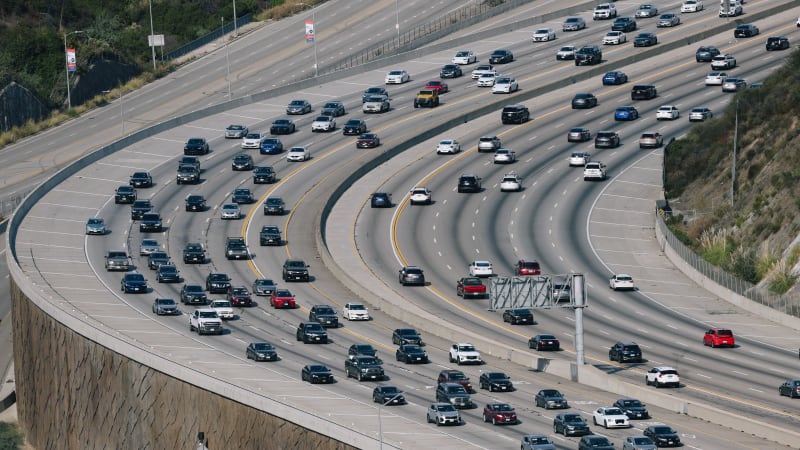AAA survey: We know what safe driving looks like, we just don’t always do it

Traffic volumes have made a big comeback post-pandemic, and though the post-pandemic high rate of traffic fatalities has started to ease slightly, deaths among pedestrians and cyclists remain on the rise. An annual AAA study sheds light on the type of driver behind these statistics. The news is, the majority of us admitted to bad driving behavior even though we know better.
The AAA Foundation for Traffic Safety interviewed 2,499 drivers for the survey and parsed them into six types, and dived deep into their driving behaviors. The organization asked drivers questions about their attitudes toward safety — as well as their actions behind the wheel in the previous 30 days. Often, attitudes did not match actions, and only 41% of drivers surveyed fell into what AAA calls its “Safe Drivers” category.
In other words, 6 in 10 of us admitted to unsafe driving, in particular, speeding. The survey categorized 27% of respondents as “Speeding Drivers.”
“Despite acknowledging the dangers, some drivers continue to engage in potentially deadly behaviors, particularly speeding,” said Dr. David Yang, president and executive director of the AAA Foundation for Traffic Safety. “Understanding the different types of risky driving behaviors and the characteristics of drivers who engage in them is crucial for developing targeted interventions to achieve safe mobility.”
The Traffic Safety Culture Index (TSCI) report slotted survey respondents into six driver profiles:
- Safe Drivers: Few engaged in any risky driving behavior.
- Distracted Drivers: Predominantly engaged in all distracted driving behaviors, most notably cellphone use.
- Speeding Drivers: Predominantly engaged in speeding behaviors.
- Distracted and Aggressive Drivers: Predominantly engaged in both distracted and aggressive driving behaviors.
- Impaired Drivers: Predominantly engaged in impaired driving (e.g., drunk driving).
- Most Dangerous Drivers: Engaged in all risky driving behaviors
According to the 2022 index, 93% of drivers said those who use a cellphone to text or email or read while driving are “very” or “extremely” dangerous. Drivers also agreed that somebody important to them would disapprove if they did it. However, 27% of drivers admitted they have sent a text or email while driving, 38% have handheld a phone during a call, and 37% read a text or email.
Some 83% of those surveyed said driving through a red light was “very” or “extremely” dangerous, while 89% condemned aggressively switching lanes or tailgating. Yet, fewer drivers consider speeding as a dangerous activity and had the “lowest perceived social disapproval,” with approximately half saying they have traveled 15 mph over the speed limit.
“Many risky drivers in this study were classified into profiles that involved speeding behavior. Focusing on speeding drivers will deter other risky driving behaviors like impaired driving and red-light running. This traffic safety measure will have the greatest impact on safety,” said Yang.
The biggest concern for “very” or “extremely” dangerous driving is drowsy driving, with 93% agreeing this is bad. Nonetheless, in the past 30 days, 18% reported they have driven drowsy.
And 94% said impaired driving is “very” or “extremely” dangerous. Out of those surveyed, 7% said they have driven after drinking alcohol, enough to qualify for a DUI.
In comparison, 70% of drivers are concerned that driving with THC in their system is “very” or “extremely” dangerous. Only 6% of drivers stated they have driven after using THC within an hour. That percentage is up compared to the TSCI numbers in the 2021 index.
These unsafe behaviors such as speeding, alcohol involvement and non-use of a seatbelt have played a crucial role in the number of traffic deaths, according to the National Highway Traffic Safety Administration (NHTSA). The rise in pedestrian fatalities has been particularly alarming, and Secretary of Transportation Pete Buttigieg has called this a “national crisis of traffic deaths” and has allocated billions of dollars in infrastructure spending to address it.
You’ll find more details in the full AAA Traffic Safety Culture Index study report.
